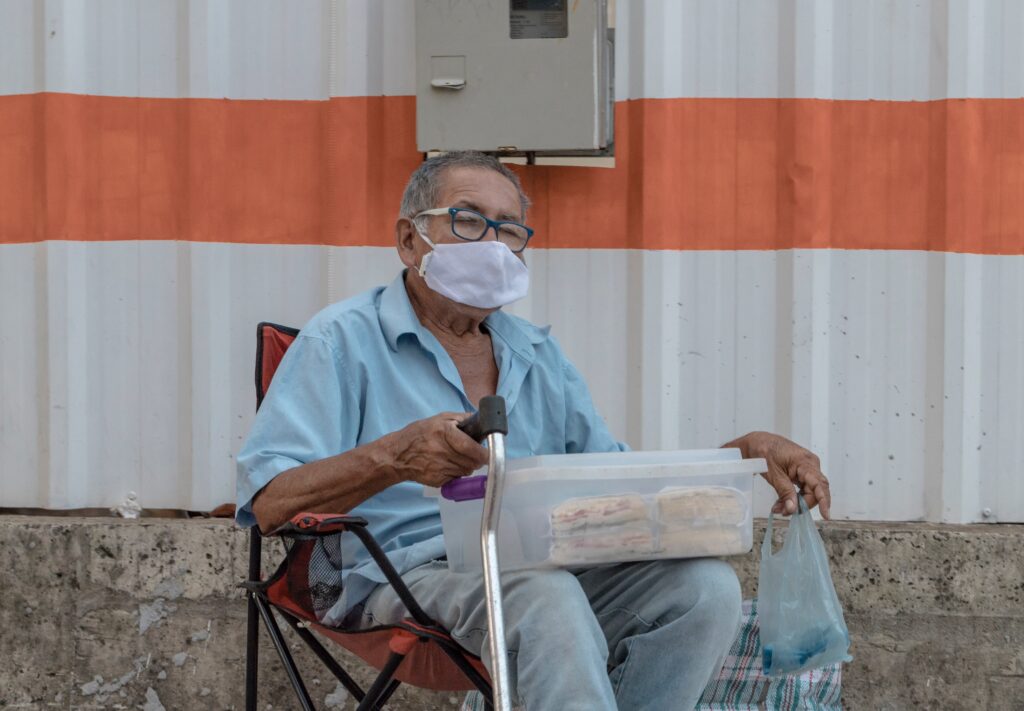A new USC study of a large and diverse group of Medicaid enrollees finds Latino patients had starkly higher odds of a positive COVID-19 test — as well as higher odds of hospitalization and death — than white patients.
The study of racial and ethnic differences in COVID-19 testing and outcomes included data from more than 84,000 adults at Contra Costa Regional Medical Center who were enrolled in that county’s Medicaid managed care plan.
The research appears in the American Journal of Preventive Medicine.
One hypothesis for worse COVID-19 outcomes among low-income people has been that they are more likely to have other preexisting health problems. After controlling for those risks, as well as demographic and neighborhood factors, Latinos still fared worse than other groups. That was in spite of the fact that the Latino patients were disproportionately younger. In general, Latinos in the U.S. are healthier than whites — a phenomenon known as the “Latino paradox.”
Sign up for Schaeffer Center news
“Even among a population of Medicaid patients who are similarly economically disadvantaged, Latinos are shouldering an unfair burden of this deadly pandemic,” said study co-author Mireille Jacobson, associate professor at the USC Leonard Davis School of Gerontology and senior fellow at the USC Schaeffer School for Health Policy and Economics.
“The substantially higher risk facing Latinos should be a key consideration in California’s strategies to mitigate COVID-19 transmission and harm.”
The opportunity to study a large and racially diverse low-income population at the public hospital appealed to the researchers. They hoped to help answer questions about what was causing COVID-19’s racial and ethnic disparities in communities around the country and to understand whether prior work was confounded by differences in economic status across groups.
Latinos were tested more for COVID-19 and had higher rates of infection, hospitalization and death
Health providers at the medical center observed in the early days of the pandemic that Latinos were more likely to test positive; in response, they increased their outreach to that community and urged them to get tested. Likely because of that outreach, testing for COVID-19 was higher among Latinos than for Black, Asian or white patients, but Latinos also had much higher infection rates. Tragically, they were also much more likely to end up hospitalized and to die from COVID-19 than white Medicaid enrollees.
COVID-19 has disproportionately affected racial and ethnic minorities in terms of infection, hospitalizations and deaths. The interplay of social, economic and demographic factors influencing COVID outcomes remains poorly understood. Racial and ethnic disparities in COVID vary widely across the country and seem to depend on local context, the study’s authors said.
They point to prior studies that showed adjusted odds of hospitalization were higher for Black and Latino patients than for whites in a Wisconsin health system. In contrast, adjusted odds of hospitalization were similar for Black and Latino patients when compared with white patients in a New York City health system.
“One of the lessons we take away from this study is that being Black in Northern California is different than being Black in New York; being Latino in this population is different than being Latino in Louisiana,” said study co-author Tom Chang, associate professor of finance and business economics at the USC Marshall School of Business.
Causes of racial and ethnic COVID-19 disparities remain unclear
Chang and Jacobson say the potential causes of these conflicting regional findings may be differences that haven’t yet been fully explored, including living and working conditions or trust of medical systems.
“Another lesson is that integrated health systems could do the data analysis that revealed these disparities essentially in real time,” Chang said. “In this case, the data is screamingly loud that Latinos are experiencing worse outcomes from COVID-19 and that these differences are not driven by differences in underlying health.”
The USC researchers are continuing to partner with the medical center to study vaccination rates and outcomes.
“We found our collaboration with Professors Chang and Jacobson tremendously valuable in helping us study the impacts of race, socioeconomics and decision-making in our health care environment,” said study co-author Samir B. Shah, CEO of Contra Costa Regional Medical Center.
“In unprecedented times like we are living through now, studying the effects of decisions we make in health care delivery and public health messaging are valuable in resource determination, community outreach, clinical care delivery and the transmission of fact-based information.”
Related Work
-
Press Release
Traditional Vaccination Playbook Doesn’t Work with COVID



